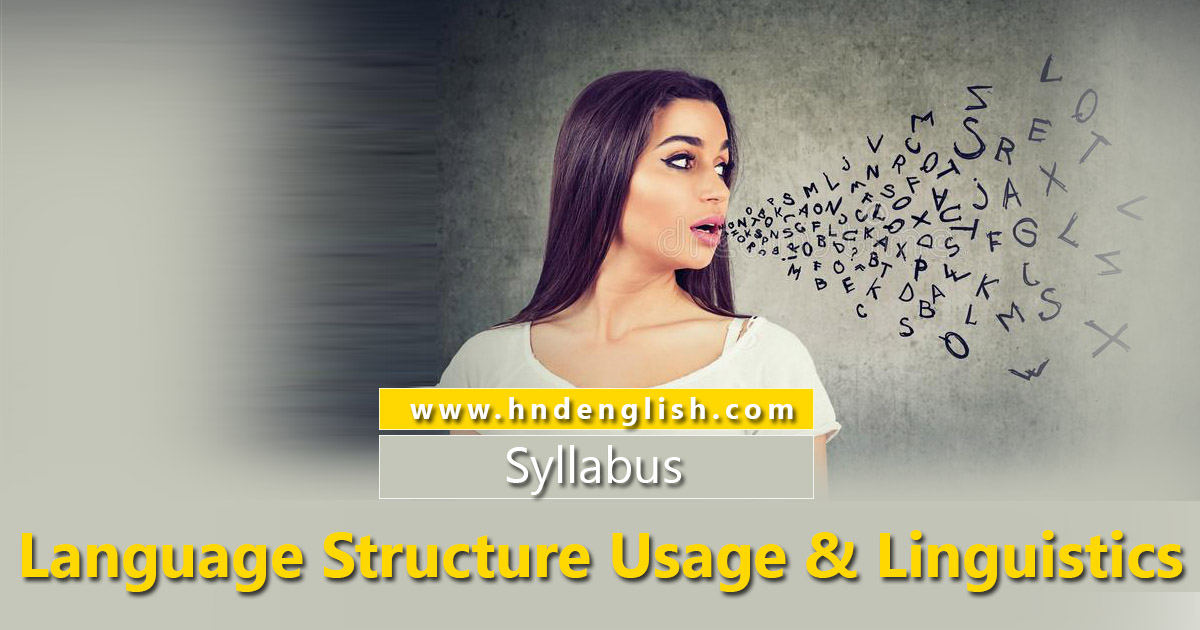LANGUAGE STRUCTURE USAGE
Word classes and their grammatical functions (10/ 05 hrs)
- Open classes: nouns, verbs, adjectives, adverbs
- Closed classes: determiners, pronouns, prepositions, conjunctions, operator-verbs, interjections, enumerators.
- Types of activities: write examples for each word class
- Rationale for word classes in grammar: Words which belong to one class only can be used in a particular position in a sentence. Provide examples.
- List the differences between the two types: e.g. open class-thousands of words. Closed classes- limited number
- Some words appear under more than one word class, e.g. ‘play’ as noun and verb, ‘that’ as determiner and conjunction
- Types of activities: write sentences to show how the word ‘round’ appears as noun, verb, adjective, adverb, and preposition.
Note: Word classes should be taught briefly (Only the introduction to word classes)
Elements of grammar (10 / 05 hrs)
- Units of language:
Clause – a kind of mini sentence, a set of words which makes a sense but may not be concluded by a full stop. A sentence may have only one clause or 2 or more clauses.
The phrase: A shorter unit of one or more words e.g. noun phrase
The phrase: A shorter unit of one or more words e.g. noun phrase
- Parts of a sentence
- Sentence element
- Subject, verb, object, complement, adverbial
- The most common parts of the sentences
- Object may be direct or indirect, the complement refers to the same thing as the subject,
- Adverbial adds further information (words, phrases such as, at home, yesterday)
- Activities: make sentences using the clause elements. Analyse their structure.
The simple sentence (10 / 05 hrs)
- A sentence consisting of only one clause
- Clause types: S V, S V O , S V C, S V O , S V O O , S V O A , (provide examples)
- Activities: Indicate to which of the clause types the given sentences belong to
The simple sentence: questions, commands, exclamations, negation (10 / 05 hrs)
- Questions
- Types of questions; yes-no questions, tag questions, Declarative questions, Alternative questions, wh- questions
-Yes-no questions- operator is placed before the subject. If there is no operator, ’do’ is introduced. e.g.has the boat left? Does he like Mary
- Wh- questions:
- Alternative questions-
- Commands: Usually has no subject. It has an imperative finite verb (the base form) of the verb
- Exclamations: sentences which have an initial phrase introduced by ‘what’ or ‘how’ e.g. What a noise they are making!
- Negation: accomplished by inserting ‘not’, n’t ‘between the operator and the predication
Nouns & Noun phrases (10 / 05 hrs)
- Noun classes
- Differences between count and mass nouns, regular and irregular nouns, abstract and concrete nouns.
- Structure of the noun phrase: head word, pre-modifiers, post modifiers
- Word classes that can function as pre-modifiers-determiners, enumerators, adjectives, modifying nouns
- Word classes that can function as post modifiers-mostly prepositional phrases
- Functions of the noun phrase-subject, direct object, indirect object, complement, apposition, adverbial. (provide examples)
- Activities: analysis of noun phrases, expanding the noun phrase using pre and post modifiers.
LINGUISTICS
Introduction to language & Linguistics (10 / 05 hrs)
- What is language?
- What is Linguistics?
Phonetics & Phonology (30 / 15 hrs)
- What is phonology?
- What is phonetics?
- Differences between phonology & phonetics.
- Sounds of English & phonetic transcription.
- Organs of speech.
- Introduction to phone, phoneme & Allophone. ( Only the introduction to terminologies)






0 Comments